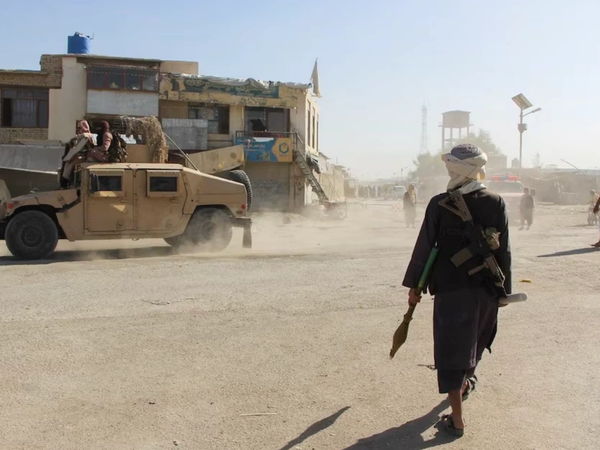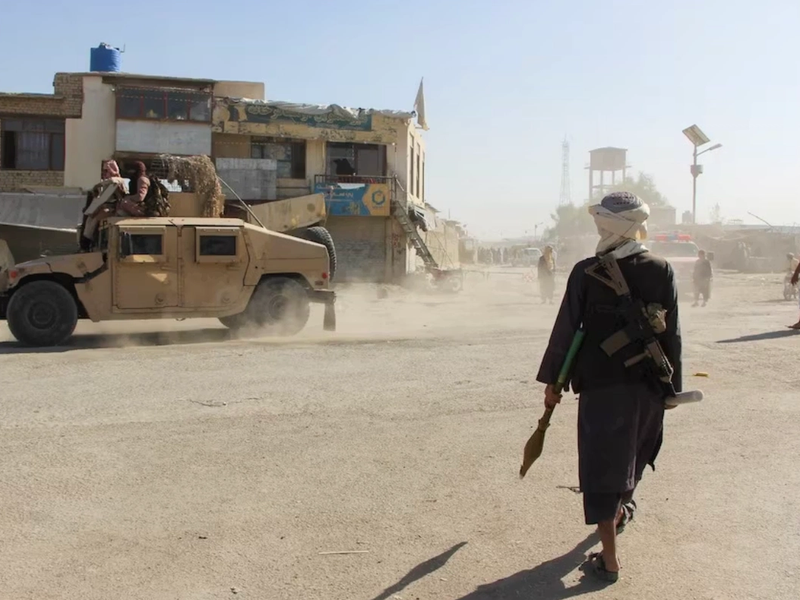Peace talks between the Taliban and Pakistan in Istanbul have ended without reaching a long-term ceasefire agreement, according to media outlets close to the Taliban and Pakistani security sources cited by Reuters.
The three-day negotiations, mediated by Qatar and Türkiye, concluded on Monday after hours of intensive discussions, but both sides reportedly failed to resolve key disputes.
A Pakistani security official told Reuters that the Taliban refused to commit to restraining the activities of Tehreek-e-Taliban Pakistan (TTP). An Afghan source familiar with the talks confirmed the breakdown, saying the discussions stopped after “heated exchanges” over the issue. The Taliban delegation, the source added, insisted it had no control over the Pakistani Taliban.
Neither Islamabad nor the Taliban has issued an official statement on the outcome.
According to Afghanistan International’s Istanbul correspondent, Nargis Horakhsh, the Taliban delegation denied the presence of TTP and other militant groups in Afghanistan. In response, the Pakistani side reportedly presented photographs of slain militants carrying Afghan identity cards, along with documents showing that some bodies were repatriated to Afghanistan.
Horakhsh reported that the Taliban delegation “had no response” to the evidence presented. Mediators and host nations are also said to have urged the Taliban to address the presence of armed groups on Afghan soil to promote regional stability and good neighbourly relations.
Pakistan has long accused the Taliban of sheltering TTP militants and allowing them to operate from Afghanistan, claims supported by UN Security Council reports, which confirm the presence of TTP commanders inside the country. The Taliban have repeatedly denied these allegations.
The Taliban’s six-member delegation in Istanbul included Rahmatullah Najib, Deputy Interior Minister; Suhail Shaheen, the group’s representative in Qatar; Anas Haqqani, a senior Taliban figure; Noor Ahmad Noor, First Political Director at the Foreign Ministry; Noor Rahman Nusrat, Director of Operations at the Defence Ministry; and Abdul Qahar Balkhi, the Foreign Ministry spokesperson.
The Pakistani delegation comprised seven members, including diplomats and senior intelligence officials.
The first round of talks, held earlier in Doha, was attended by the defence ministers and intelligence chiefs of both sides and resulted in a temporary ceasefire. However, Pakistan has kept the details of that accord classified, while the Taliban said it would release them once the Istanbul round concluded.
The Istanbul negotiations followed deadly border clashes and Pakistani airstrikes targeting what Islamabad claimed were TTP strongholds in Kabul, Kandahar, and Paktika.
A Taliban Foreign Ministry source told Afghanistan International that Pakistan had demanded the Taliban launch operations against the TTP and officially designate it a terrorist organisation.
The source said Pakistan threatened further airstrikes inside Afghanistan if the Taliban failed to act, warning it would target any “suspicious activity” linked to the TTP.
The Taliban, however, maintained that it does not recognise the Pakistani Taliban as an organised group and considers the issue an internal matter for Pakistan. The group reiterated its pledge not to allow Afghan territory to be used against any neighbouring country.
The source added that the Taliban leadership had instructed its negotiators not to compromise on their stance, accusing Pakistan of attempting to undermine the talks.

